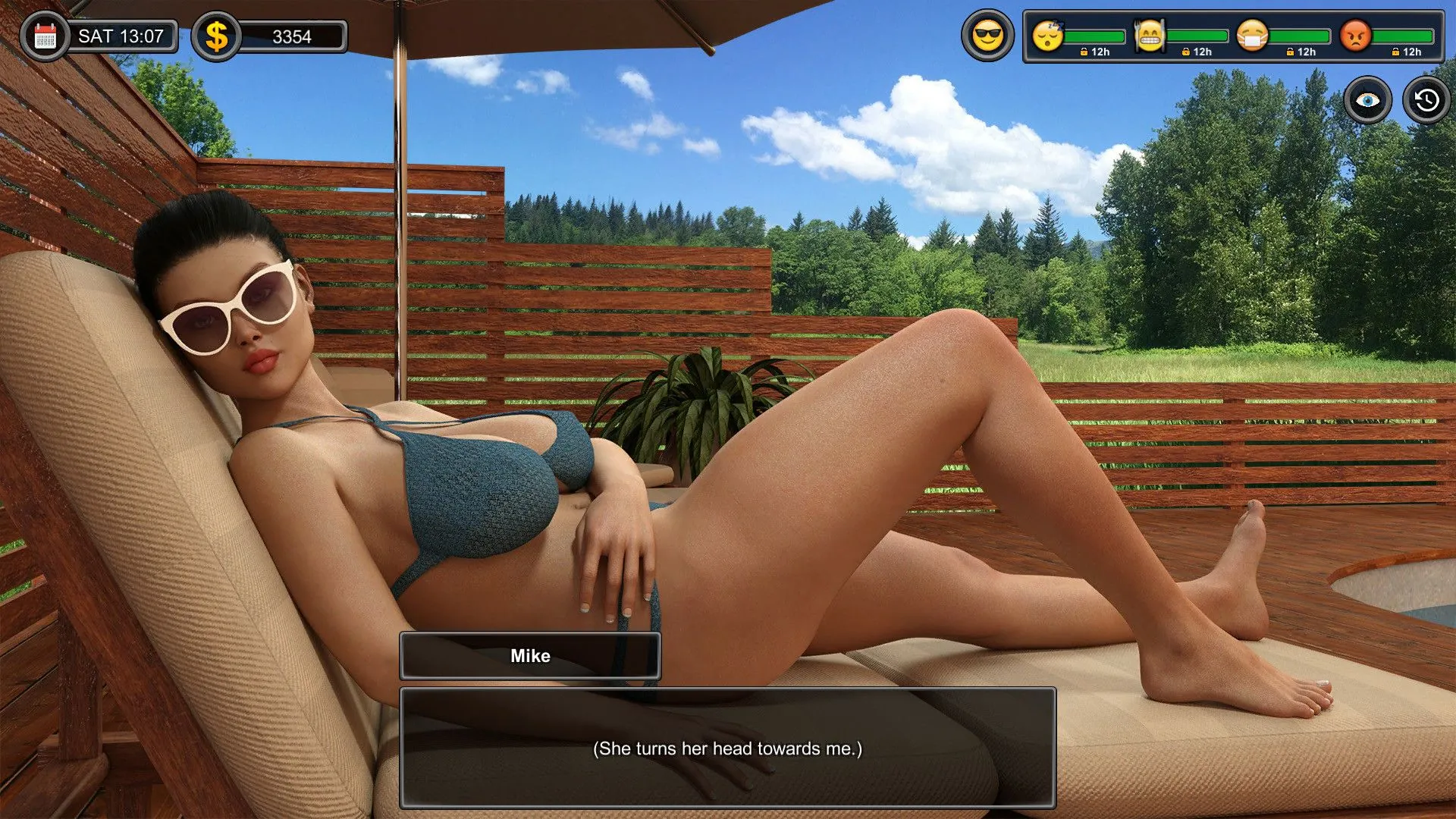
Simple Days
Play Simple Days
Simple Days review
A Detailed Look into the Features, Characters, and Mechanics of Simple Days
Simple Days is a narrative-driven interactive game that captivates players with its immersive storylines and character interactions. This guide dives into the core elements of Simple Days, highlighting its unique gameplay mechanics, character dynamics, and special events. Whether you’re new to the game or looking to deepen your experience, this article provides practical insights and tips to navigate the game world effectively.
Understanding Simple Days: Gameplay and Core Mechanics
If you’re anything like me, you’ve probably downloaded your fair share of interactive story games, only to be let down by clunky controls, predictable plots, or relationships that feel about as deep as a puddle. 😓 I was just about ready to give up on the genre when I stumbled upon Simple Days. And let me tell you, it was a breath of fresh air. It doesn’t just follow the formula—it refines it, focusing on the quiet, meaningful moments that other games often gloss over.
This chapter is your friendly guide to the heart of the experience: the Simple Days gameplay and the systems that make it tick. We’re going to break down everything from how you move your character through their world to how a single conversation can alter the course of your story. By the end, you’ll not only understand the Simple Days mechanics but you’ll also have a pocketful of Simple Days tips for beginners to start your journey on the right foot. 🙌
What Makes Simple Days Unique? ✨
So, what’s the big deal? On the surface, Simple Days might seem familiar: you play a character navigating life, building friendships, and uncovering stories. But its magic lies in its dedication to authenticity. This isn’t a game about saving the world; it’s about saving a moment. It’s about the anxiety before a big test, the comfort of a shared lunch, and the bittersweet feeling of a chapter closing.
The game’s unique charm is baked into its Simple Days mechanics. Time flows in a realistic, diurnal cycle, and you have to actually manage your energy levels. You can’t just run around town talking to everyone 24/7—you’ll get exhausted! This might sound like a hassle, but it forces you to be intentional. Do you use your last bit of energy to help a friend, or do you head home to rest so you’re sharp for a job tomorrow? These small, daily trade-offs create a surprisingly deep and personal Simple Days gameplay loop.
Furthermore, the Simple Days relationship system is less about grinding friendship points and more about paying attention. Characters remember what you say and how you act. Forget a birthday or dismiss a character’s passion, and you’ll see a genuine cooling in your interactions. It’s this focus on consequence and memory that truly sets the game’s narrative apart.
Key Gameplay Features and Controls 🎮
Getting a handle on how to play Simple Days is, well, simple! The interface is clean and intuitive, putting the focus on the world and its inhabitants rather than a cluttered HUD. You’ll spend most of your time exploring the charming, isometric-style town, interacting with objects and people.
The core loop involves planning your day. Each morning, you choose a primary focus: work, study, or social. This choice influences your stats and determines which Simple Days events you’re more likely to encounter. From there, you navigate the town using a simple virtual joystick or tap-to-move controls, depending on your device preference.
Here’s a quick breakdown of the primary controls and actions:
| Action | Control / Input | Description |
|---|---|---|
| Movement | Virtual Joystick (left) or Tap | Navigate your character through the various locations in town. |
| Interact | Tap on Object/Person | Talk to characters, read notices, examine objects, or start activities. |
| Inventory | Tap Backpack Icon | Access items you’ve collected, like gifts or books. |
| Menu | Tap Profile Icon | Check your stats, relationships, current goals, and save your game. |
| Speed Up Time | Hold on Screen | Hold your finger down to make time pass more quickly when needed. |
My biggest tip here? Take it slow! 🐢 Rushing through areas means you’ll miss hidden interaction points and subtle environmental storytelling. The beauty of Simple Days gameplay is in the details—a forgotten toy in the park, a changing shop window display. These aren’t just set dressing; they’re often clues to deeper stories about the Simple Days characters.
Managing Relationships and Events 💬
This is where the game truly shines. The Simple Days relationship system is the core engine of the entire narrative. Every character has their own schedule, personality, and problems. Building a relationship isn’t just about giving the right gift (though that helps!); it’s about being present for them.
Each Simple Days characters has “Key Moments”—small, often missable windows of time where they need a friend. Maybe Leo is stressing over his art project outside the community center, or Maya seems down while sitting alone at the cafe. Talking to them during these moments unlocks special dialogue and strengthens your bond significantly, often leading to unique Simple Days events.
These events are the milestones of your relationships. They can be anything from a heartfelt one-on-one conversation to a group outing that involves multiple characters. Triggering them usually requires a combination of a high enough relationship level and being in the right place at the right time.
🧠 Simple Days tips for beginners: Check the town bulletin board every morning! It often hints at where characters will be or what they’re planning, giving you a heads-up on potential event triggers.
Let’s look at an example. One of my favorite Simple Days characters is Ben, a quiet aspiring musician.
- Early Game: I’d just say hello to him when I saw him. Our relationship was neutral.
- Building Rapport: I learned he practiced his guitar in the plaza every afternoon. I started showing up regularly to listen, which slowly increased his affinity.
- The Choice: One day, I found him looking dejected. The game gave me a dialogue choice:
- Option A: “Maybe you should just give up.” (Direct and dismissive)
- Option B: “Everyone has off days. Want to get a coffee and talk about it?” ( empathetic and supportive)
- The Outcome: I chose Option B. This triggered a special event where we went to the cafe. He confessed his doubts about his talent, and I had the option to encourage him. This single conversation unlocked a whole new story thread about him entering a local music competition, which became a multi-day event I could help him prepare for.
This example shows how the Simple Days mechanics for relationships are deeply tied to player choice. A different choice would have closed off that story arc entirely. There’s no “right” answer, only the story you choose to create. Your save file is a collection of all these moments, making your playthrough uniquely yours.
So dive in, talk to everyone, and don’t be afraid to make a choice that feels right to you. That’s the real secret to mastering how to play Simple Days. Your story is waiting to be written. 📖
Simple Days offers a rich, interactive experience that blends storytelling with strategic relationship management. Understanding its gameplay mechanics and character dynamics is essential for fully enjoying the game. By exploring the unique features and learning how to trigger special events, players can immerse themselves deeper into the game world. Dive in, experiment with choices, and discover the many paths Simple Days has to offer.




















